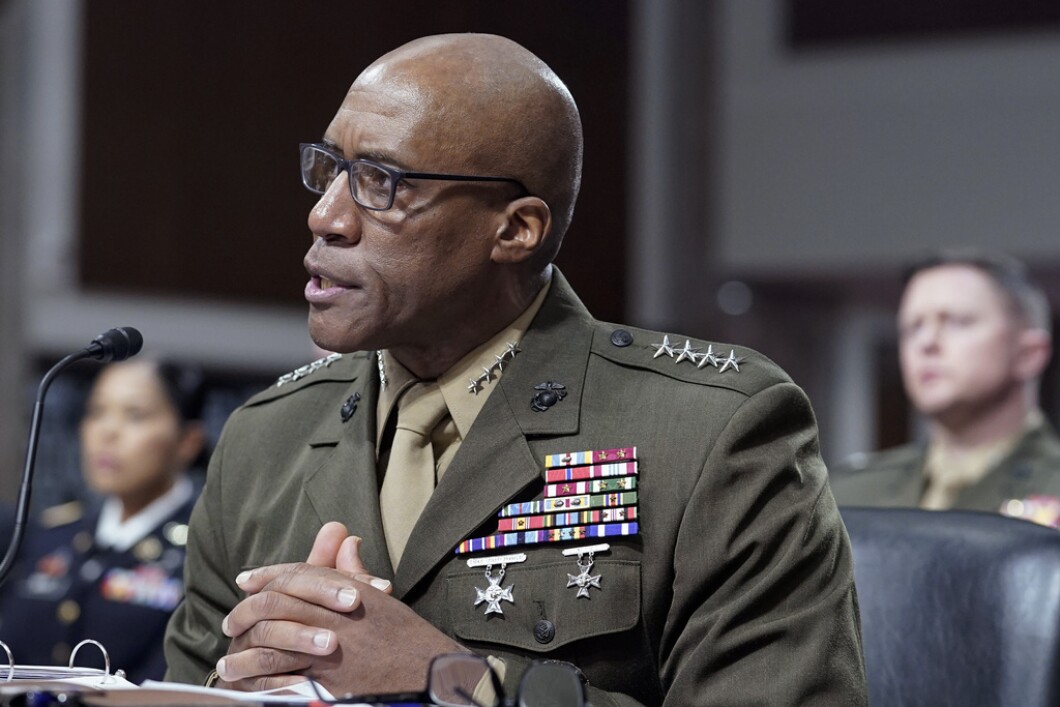
A Russian mercenary group has gained notoriety for leading battles in the war in Ukraine, but its efforts in multiple African nations predate that conflict.
U.S. Africa Command chief Gen. Michael Langley mentioned to lawmakers on the Senate Armed Services Committee on Thursday about the Wagner Group’s activity in Mali, Burkina Faso, and Libya, among other African countries.

US MILITARY LEADERS WARN ABOUT GROWING CHINA THREAT IN MIDDLE EAST
“Wagner’s short-term promises can be enticing, but the long-term outcome for African clients are nations mired in corruption and crime that stunt economic growth. Wagner’s financial price tag is exorbitant,” he said in his written testimony. “The full Wagner bill is even worse: the failure of government institutions, the withdrawal of stalwart security allies, the extraction of mineral wealth, and long-term resource concessions and debt that chips away at Africans’ future.”
“Wagner mercenaries have been quick to turn” the instability caused by Jama’at Nusrat al-Islam wal Muslimin, an al Qaeda affiliate, in Mali and Burkina Faso “into opportunity,” he wrote.
“Wagner’s draconian operations with its partner in Mali both add to the human cost of terrorism and create more openings for terrorist groups,” Langley said. “Wagner exploits political fractures in Libya, where Russia seeks to threaten NATO’s southern flank. Wagner benefits from Libya’s fragmentation, and its interference in parts of Libya risks hindering efforts to form the unified national government and security forces that the Libyan people want and deserve.”
Wagner contractors have been deployed to Syria, Yemen, Libya, Sudan, Mozambique, Madagascar, and the Central African Republic, according to the Brookings Institution, and in many cases, they are brought in to squash possible uprisings against local leaders, though it comes at a cost. For example, the mercenary group deployed roughly 500 soldiers to Sudan in 2017 to end local uprisings against Omar al Bashir, and in exchange, the group’s founder, Yevgeny Prigozhin, received rights to gold mining in the country, Brookings said.
Secretary of State Antony Blinken is currently in Niger, and he also discussed the threat the paramilitary company poses on the continent.
“Where Wagner has been present, bad things have inevitably followed,” he said during a press conference with Niger’s Foreign Minister Hassoumi Massoudou. “The — it has not proven to be an effective response to insecurity, and at the same time we’ve seen countries that find themselves weaker, poorer, more insecure, less independent as a result of an association with Wagner. And we’ve also seen Wagner engage in the exploitation of a country’s resources, bring corruption with it, bring violence with it — overall worsening security, not improving it – and engaging in human rights abuses at the same time.”
Closer to home, the Wagner Group has been on the front lines of the Russian military’s battle in Bakhmut, Ukraine. The fighting in the small town has gone on for months with both sides incurring staggering casualties, though they have been unable to claim the city center.
Prigozhin capitalized on a series of Russian military losses to seize power within Russian President Vladimir Putin’s inner circle for himself and his organization at the expense of Russia’s Ministry of Defense. However, the Wagner Group has been unable to capture Bakhmut, and the two sides have “likely reached a boiling point,” the Institute for the Study of War said in its rundown of the latest events in the war last Sunday.
CLICK HERE TO READ MORE FROM THE WASHINGTON EXAMINER
Prigozhin accused Russian Defense Minister Sergei Shoigu and Chief of the Russian General Staff Gen. Valery Gerasimov of treason last month, saying that they were intentionally providing his forces with fewer resources, leading to unnecessary deaths.
“Putin and the Russian MoD may use Prigozhin as a scapegoat for the costly drive on Bakhmut once the offensive culminates. ISW assessed on February 5 that Putin relies on a group of scapegoats to publicly take risks in his place and shoulder the blame for Russian military failures and unpopular policies,” ISW concluded. “Putin will likely use Wagner’s high casualties, reports about poor morale, and war crimes to deflect from likely equal or possibly worse problems within the Russian Armed Forces. Kremlin-affiliated milbloggers have ambushed Prigozhin with interviews that exposed numerous Wagner controversies regarding the ineffectiveness and mistreatment of the Wagner convict force — likely in an effort to set conditions in the Russian information space to discredit Wagner.”







